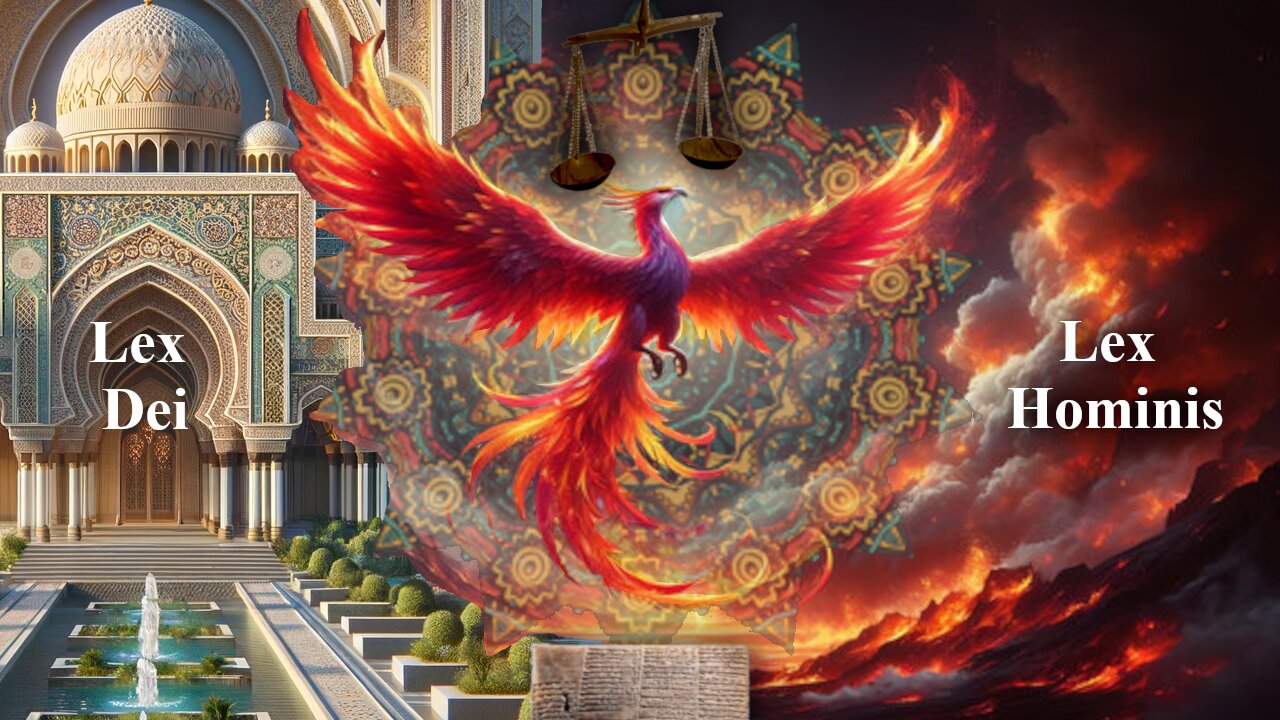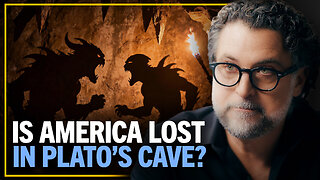Premium Only Content

Islam and Science 2/3: Where does Islamic law stand on science?
0:00 Outline
0:19 Principles
6:40 Semantics
11:15 Cosmology
14:29 Evolution
18:47 Medicine
21:31 History of science in Islam
32:36 Conclusion
In the Islamic tradition, prophets are beacons of knowledge and wisdom that light torches, passed down through generations from teacher to student. Prophets establish the axioms of science, or apodictic knowledge, in scripture (Qur’an 2:2), which are subsequently developed by scholars as aporetic or probabilistic knowledge. As Muhammad said: "The sages are heirs of the prophets" (Riyad as-Salihin 12:13). Thus, it is crucial to obtain knowledge from a correct source or lineage of teachers. This was the underlying concern of Imam al-Ghazali (d. 1111) when faced with the question of the place of Greek philosophy in Islam through its professors in the Muslim world, notably Ibn Sina and Al-Farabi.
Many Muslim intellectuals had been impressed by ancient Greek philosophers who seemed to have discovered fundamental religious truths like God, the immortal soul, and rewards for the righteous and punishment for the wicked (Hades and the Isles of the Blessed) through reason. Al-Ghazali's concerns as an intellectual and headmaster of a prestigious Nidhamiya academy were both curricular and genealogical. Should speculative philosophy be included in Islamic curricula, and do its purveyors have legitimate prophetic lineages to qualify them as teachers? His conclusion, reflecting the consensus of Muslim scholars since the 12th century and not significantly challenged to date, is that formal and empirical sciences are valuable while speculative philosophy is not.
The history of science from an Islamic perspective consists of the genealogy of knowledge from prophets sent to various civilizations. Science is thus seen as a product of ancient civilizations; it's neither a recent discovery nor invention by "barbarians" who attacked or destroyed them.
In this video, we see that Islam has a longer memory than these "barbarians," and takes a highly critical approach to their history of science, emphasizing they are not legitimate heirs of Roman (Western) or Judeo-Christian traditions which they sacked and now claim as their own.
-
 LIVE
LIVE
Kim Iversen
1 hour agoEpstein Island: What's With The Creepy Medical Chair and Masks?
1,050 watching -
 LIVE
LIVE
Redacted News
1 hour agoDeep State Coup Coming for Trump? New JFK Files Released and NATO Preparing Attack on Russia
8,011 watching -
 LIVE
LIVE
Dr Disrespect
7 hours ago🔴LIVE - DR DISRESPECT'S TRIPLE THREAT CHALLENGE - ARC RAIDERS • BF6 • FORTNITE
1,208 watching -
 1:00:57
1:00:57
Russell Brand
4 hours agoThe Vaccine Ideology Unmasked | Dr Peter McCullough - SF658
88.5K33 -
 1:11:25
1:11:25
vivafrei
3 hours agoKash Patel's Jacket-Gate! Pfizer Whistleblower Qui Tam on Appeal! Meanwhile in Canada! AND MORE!
42.7K21 -
 16:30
16:30
Clintonjaws
6 hours ago $2.30 earnedEntire Room Speechless as Pete Hegseth Snaps Destroying All Media To Their Face
12.9K7 -
 22:12
22:12
Dad Saves America
2 hours agoHow Greek Philosophers Created Western Civilization: The Death of Debate - Pt 2
3.28K -
 LIVE
LIVE
LFA TV
19 hours agoLIVE & BREAKING NEWS! | WEDNESDAY 12/03/25
1,298 watching -
 1:05:46
1:05:46
The Quartering
4 hours agoNew Epstein Video Drops! The US Economy Has SCARY Numbers Released & More
116K25 -
 1:07:11
1:07:11
The White House
6 hours agoPresident Trump Makes an Announcement, Dec. 3, 2025
14.5K15